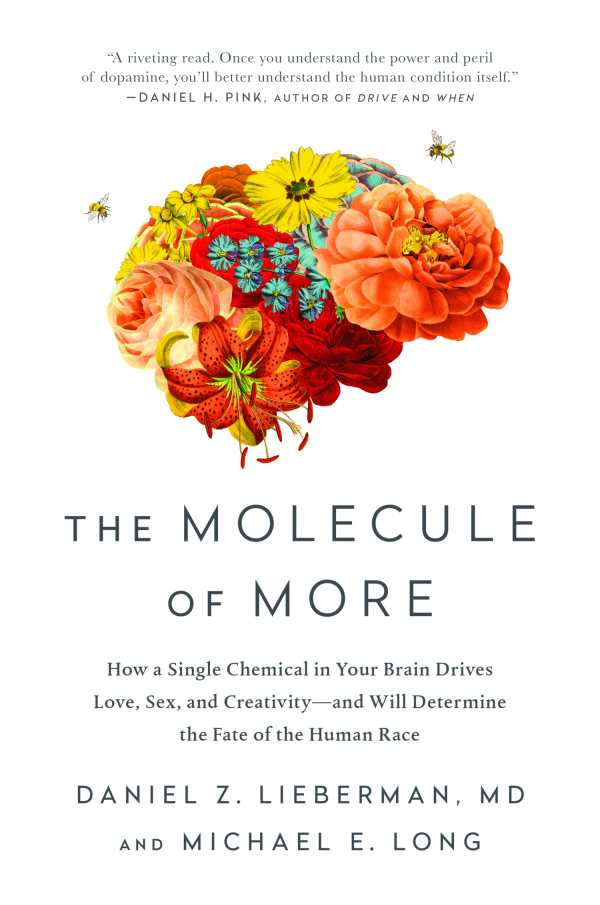
The Molecule of More
How a Single Chemical in Your Brain Drives Love, Sex, and Creativity—and Will Determine the Fate of the Human Race
- 2018 INDIES Finalist
- Finalist, Psychology (Adult Nonfiction)
Dopamine has a lot to answer for. First discovered in 1957, it is variously known as “the pleasure molecule” and “the reward circuit.” In The Molecule of More, an excellent work of wide-ranging popular science, Daniel Z. Lieberman and Michael E. Long probe the unexpected connections between dopamine and everything from addiction to creativity.
Novelty is a natural human craving. Dopamine inspires us to hanker after whatever comes next, compelling us “to possess the world beyond [our] immediate grasp,” the authors explain. This can be a good thing if it fuels invention and entrepreneurship, but bad if it results in unmanageable obsessions—with anything from video games to pornography—or depression when people aren’t content with their achievements.
The most fascinating section of the book examines the interplay between madness and genius. Schizophrenia and bipolar disorder, which studies have suggested are 25 percent more common in creative types, may have a dopaminergic component. One variant of the dopamine receptor gene, called 7R, is particularly associated with impulsive, novelty-seeking behavior; perhaps early humans with this gene were more likely to migrate to new areas.
Lieberman and Long always keep the average reader in mind: their featured studies are not at all dry, and they pause regularly to give relevant anecdotes and examples. Their pop-culture references are perfectly illustrative, like Mick Jagger and Seinfeld’s George Costanza as models of men who, never satisfied, are always moving on to new relationships.
Dopamine is both a blessing and a curse. Lest it steer us “ever onward into the abyss,” the authors offer strategies for stepping back: take mini breaks in nature, refrain from multitasking, and spend time fixing things. In such ways we can indulge the best of our pleasure-seeking impulses and avoid the worst.
Reviewed by
Rebecca Foster
Disclosure: This article is not an endorsement, but a review. The publisher of this book provided free copies of the book to have their book reviewed by a professional reviewer. No fee was paid by the publisher for this review. Foreword Reviews only recommends books that we love. Foreword Magazine, Inc. is disclosing this in accordance with the Federal Trade Commission’s 16 CFR, Part 255.
